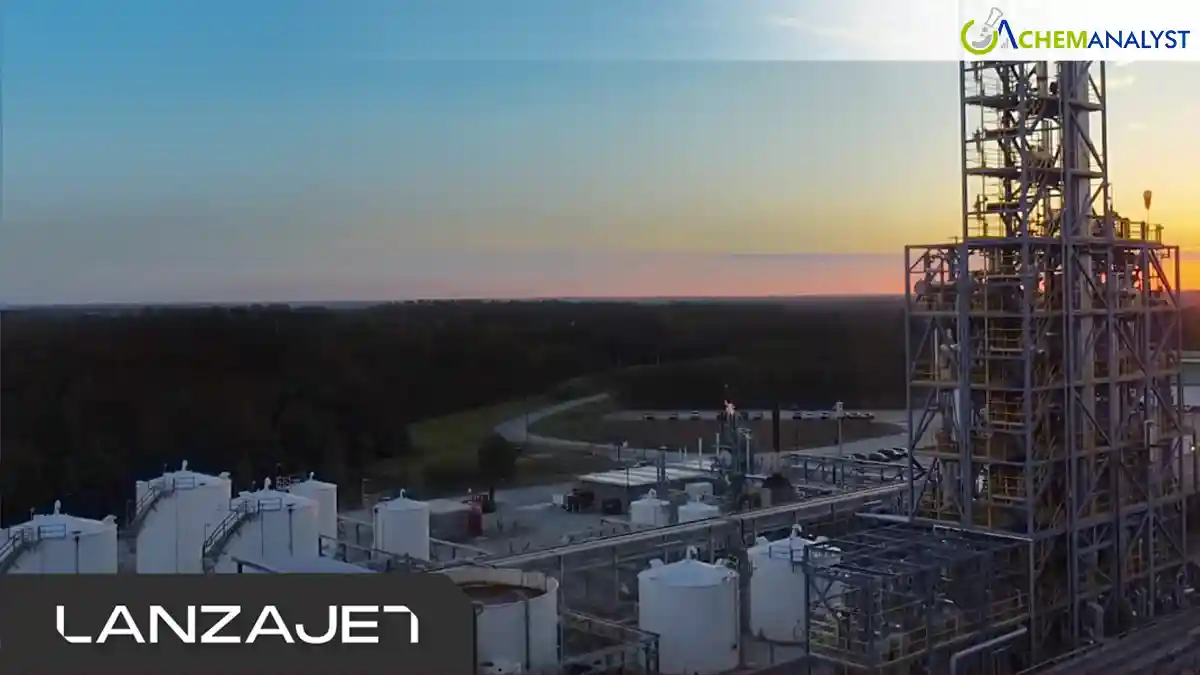Welcome To ChemAnalyst

LanzaJet launches the world’s first commercial ethanol-to-jet fuel plant, delivering scalable SAF technology to accelerate global aviation decarbonization and strengthen energy security.
LanzaJet, Inc., a prominent innovator in next-generation fuel technologies and a producer of sustainable fuels, has announced a major milestone for the global aviation sector. The company has successfully operated its commercial-scale LanzaJet Freedom Pines Fuels plant in Soperton, Georgia, USA, producing jet fuel derived entirely from ethanol. This accomplishment marks the world’s first instance of a commercial facility generating jet fuel from ethanol feedstock and represents the first non-petroleum renewable aviation fuel solution fully compatible with today’s aircraft and existing fueling infrastructure.
This achievement is the result of 15 years of persistent scientific advancement, industry collaboration, investment, and progressive scaling efforts. It provides definitive proof that ethanol can be converted into jet fuel at commercial volumes, addressing a long-standing challenge in aviation’s journey toward lower-carbon operations. With the traditional HEFA bio-oil pathway nearing limits in both availability and qualification of feedstocks, LanzaJet’s proprietary Alcohol-to-Jet (ATJ) technology now opens the door for the next major wave of sustainable aviation fuel (SAF) development. The technology is suited to diverse regions across the world and offers a timely solution for an industry urgently seeking alternatives to fossil-based fuels.
Jimmy Samartzis, CEO of LanzaJet, described the achievement as a powerful example of what becomes possible when innovation, dedication, resilience, and collaborative effort converge to build a new industrial model. He emphasized that the milestone is not only significant for LanzaJet and its investors but also a notable breakthrough for global aviation, offering renewed optimism for the future of sustainable flight. Samartzis added that LanzaJet’s journey has consistently been mission-driven—focused on scaling a new industry, creating economic and environmental value, and honoring its commitments despite challenges. According to him, the company now stands uniquely equipped with both technological expertise and operational experience to influence the trajectory of SAF production in the coming decade.
LanzaJet’s ATJ technology is one of the most impactful SAF innovations to reach commercial readiness in nearly ten years. It relies on globally abundant ethanol resources and can tap into additional ethanol produced from waste materials and recycled carbon. This broad feedstock flexibility gives nations an opportunity to strengthen agricultural sectors, foster new economic development, and boost domestic energy resilience. With ATJ, countries can also localize fuel supply chains, improving control over production and distribution.
The Freedom Pines Fuels facility is expected to serve as a foundational model for expanding SAF production internationally. It is the first fully integrated First-of-a-Kind (FOAK) plant utilizing multiple breakthrough technologies, including Technip Energies’ Hummingbird® Ethanol-to-Ethylene system and an Oligomerization solution developed jointly by the U.S. Department of Energy and LanzaTech. LanzaJet not only invested in but also engineered, constructed, integrated, and commissioned these systems to create the world’s first commercial-scale ethanol-to-jet fuel production facility.
The ATJ process is capable of converting a wide range of sustainable feedstocks such as municipal solid waste, agricultural residues, energy crops, and captured carbon into low-carbon jet fuel. When blended with Jet A-1, the fuel meets global certification standards and can seamlessly power existing aircraft without modifications. LanzaJet is already deploying its technology across multiple regions—including the U.S., Australia, India, Japan, the UK, the European Union, Colombia, the Middle East, and Kazakhstan.
Located in Treutlen County, less than 100 miles from Savannah, the Freedom Pines Fuels plant required an investment of more than $300 million. During construction, it supported over 300 jobs and has since created more than 65 direct and indirect ongoing positions. LanzaJet’s accomplishment builds on a history of pioneering achievements that began within LanzaTech in 2012, when the ethanol-to-SAF pathway was first explored. This early effort moved from laboratory experiments to pilot and demonstration facilities, eventually earning ASTM approval in 2016. The technology went on to power initial commercial test flights with Virgin Atlantic and All Nippon Airways in 2018 and 2019, respectively—laying the groundwork for this monumental commercial-scale breakthrough.
We use cookies to deliver the best possible experience on our website. To learn more, visit our Privacy Policy. By continuing to use this site or by closing this box, you consent to our use of cookies. More info.
